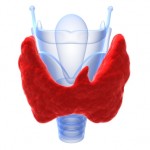This post pings off the April 17, 2012 article in The Wall Street Journal, "The Guide to Beating a Heart Attack." I initially wrote about surviving a heart attack (myocardial infarction {MI} is the medical term). Next I wanted to turn toward the prevention side.
I first found the Interheart study's article from 2004, "Nine modifiable risk factors predict 90% of acute MI." The study followed 29,000 people from 262 sites in 52 countries and concluded that the common belief that half of heart attacks can be predicted was clearly an underestimate.
The research group found the same impact of the nine variables everywhere in the world: abnormal blood lipids (fats, like cholesterol) and smoking were at the top of their list. Then came diabetes, high blood pressure, abdominal obesity, stress & depression, exercise, diet and alcohol intake.
I was used to measuring cholesterol and its HDL (so-called good cholesterol) and LDL (bad cholesterol) components. This study actually used a more sophisticated lipid approach.
They measured the ratios of the proteins that bind to and carry fats, apolipoproteins A and B. APOA is associated with HDL lipids while APOB is said to unlock the door to cells and in doing so acts as an unwelcome delivery van for cholesterol. When present in high levels, APOB can lead to plaque formation in blood vessels and an increased risk of coronary heart disease (CHD).
They also found some good news: as expected, eating fruits and vegetables daily, exercising and perhaps moderate alcohol intake were associated with lower risks of CHD. Again this was true everywhere in the world.
The WSJ article mentioned that hospital admissions for heart attacks had actually decreased among the elderly; these nine factors were better predictors in younger groups. What can be done to stop the looming specter of CHD among our younger population?
The CDC examined the parameters in a recent online article titled "A Growing Problem." One issue was "screen time." Our kids eight to eighteen average four an a half hours a day watching TV and three more on cell phones, movies, computers and video games. I even read an article about a two-year-old whose parents think learns a lot from their iPad. Maybe so, but how much exercise does that kid (and his older compatriots) get?
The CDC feels there is a dearth of quality physical activity in our schools; as of 2009 only a third of them provided daily PE for our kids. And after they leave school or when they're on vacation, many don't have safe access to biking, hiking, running, playing areas and trails.
One Massachusetts community, Somerville, has gotten attention for their anti-obesity integrated program, "Shape Up Sommerville" (You can watch the thirteen minute PBS special on their community-wide progress). The Robert Wood Johnson Foundation is attempting to help similar programs get started across the country, especially focusing on childhood obesity.
Recently I heard a NPR comment that caught my attention. If we don't do something to stop the epidemic of childhood obesity, we'll soon be seeing CHD rates soar in people in their 20s and 30s and maybe even younger.
A French researcher said, "Mankind is doing a good job of killing himself."
We need to try new approaches to help our kids. The Somerville plan sound like a good place to start.





